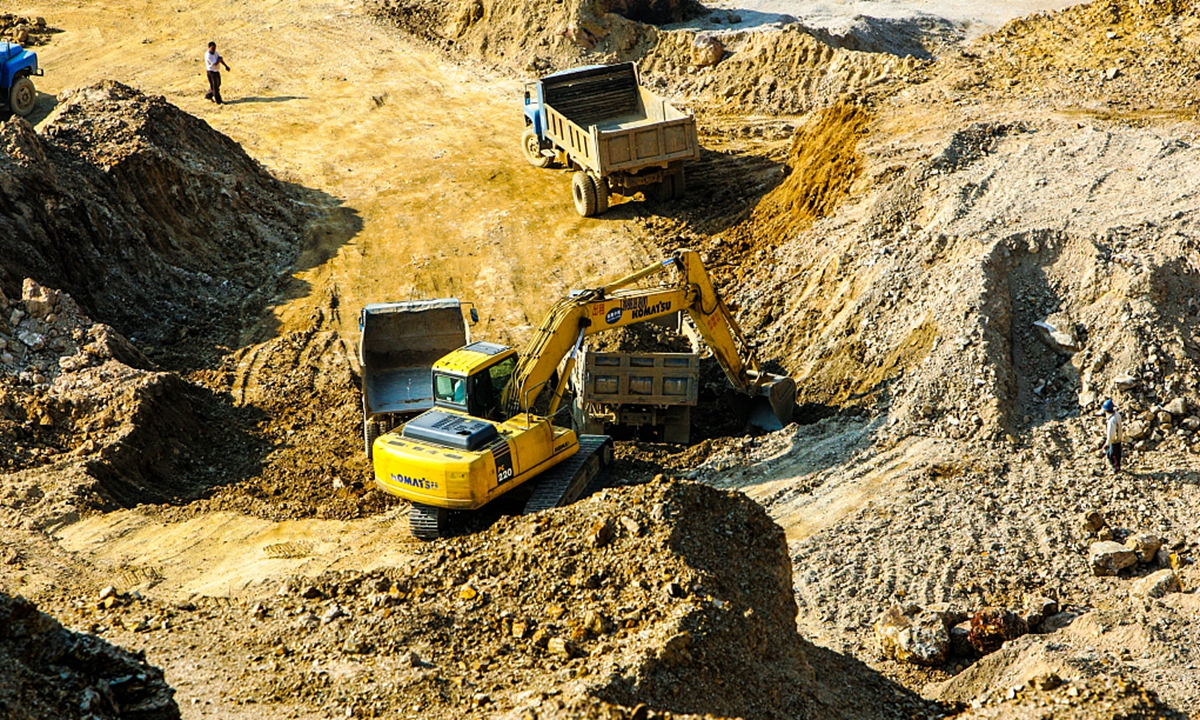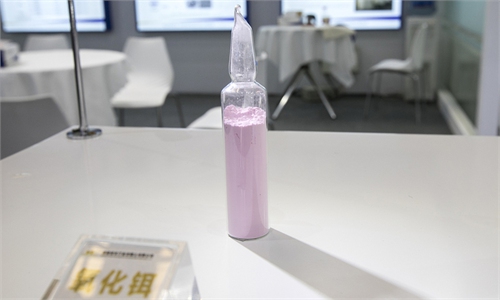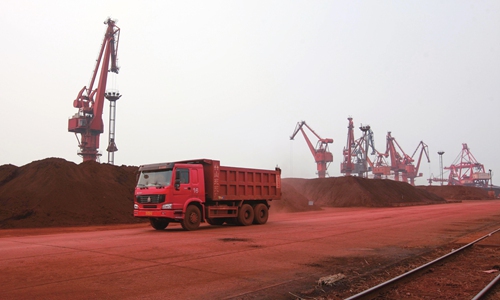
rare earth Photo:VCG
A senior Chinese official on Wednesday called on rare-earth companies to accelerate their digital transformation and carry out mergers and reorganizations, as the country has moved swiftly to upgrade the crucial sector and build an efficient, robust industry cluster.
The use of high technologies marked by 5G, artificial intelligence and the industrial internet should be integrated with the rare-earth industry to enhance production efficiency and product quality, Chang Guowu, an official from the Ministry of Industry and Information Technology (MIIT), said at a press conference in Beijing.
Rare-earth companies are also encouraged to carry out mergers and reorganizations in accordance with market principles and the rule of law during the 14th Five-Year Plan period (2021-25).
The nation will support rare-earth companies to expand into the downstream segment of the industry chain to enhance their development capabilities and brand influence, said Chang.
The remarks came after China officially set up the China Rare Earth Group Co on December 23, an industrial conglomerate said to be the world's largest, through merging several key producers of these important mineral resources.
Chang said that China will grant rare-earth prospecting and mining rights in an appropriate and orderly manner to enhance exploration. Meanwhile, rare-earth enterprises will be guided to participate in international cooperation with foreign new material enterprises and technology research and development institutions.
From January to November, China's output of rare-earth materials totaled 191,000 tons, up 20.5 percent year-on-year, according to the Rare Earth Industry Association.
The MIIT also released development targets for other raw materials during the 14th Five-Year Plan period. For example, by 2025, the production capacity of key raw material and bulk products such as crude steel and cement will only decrease not increase, and the capacity utilization rate will remain at a reasonable level.
Overall energy consumption per ton of steel in the iron and steel industry is to be reduced by 2 percent, while that of cement products should fall by 3.7 percent.
The carbon emissions of electrolytic aluminum producers are to decline by 5 percent.
China has set the goals of hitting peak emissions before 2030 and reaching carbon neutrality by 2060. Against this backdrop, China has been forging ahead toward a greener future, committed to transforming the steel industry into a low carbon-emitting one.
China's daily crude steel output continued to decline in late November. Major steel mills saw their average daily output of crude steel stand at around 1.72 million tons in late November, shrinking 18.46 percent year-on-year, according to the China Iron and Steel Association.
Global Times



